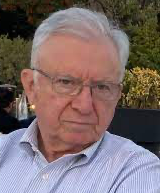
Türkiye’s Thirteen Years of Trouble in Syria
The recent “rebel” offensive in northern Syria has brought multiple security challenges once again along our 911-kilometer border with our southern neighbor. The confusion it has caused is understandable because there are not only countries but many “rebel groups” with different interests. Relationships are intriguing and conflictual. As usual, attention is now focused on battlefield developments and the diplomatic flurry among the principal players. Nonetheless, how we got here is a lesson we, the people of Türkiye, should never forget as I have repetitiously underlined in earlier posts regarding Syria.
The following, with several minor grammatical corrections, is a blog post I published more than four years ago.
“Türkiye’s Syria Labyrinth (2)
“August 19, 2019
“In early August, American and Turkish military delegations met in Ankara to discuss plans to coordinate the establishment of a safe zone in northern Syria. A joint statement issued at the end of the talks said they agreed on the rapid implementation of initial measures to address Türkiye’s security concerns, to set up a joint operations center in Türkiye as soon as possible to coordinate and manage the establishment of the safe zone together; and, that the safe zone shall become a peace corridor, and every effort shall be made so that displaced Syrians can return to their country.
“Since the statement does not represent a breakthrough and leaves many questions unanswered observers are understandably trying to predict what might follow. The topics are the breadth of the so-called security zone, who will monitor it, and what this would mean for Syria’s territorial integrity. What is clear is that a perfect solution remains an illusion and US support for the PYD/YPG will continue to be more than a thorn in the side of the Turkish-American relationship.
“While we should not cease seeking solutions to an intractable situation it is equally important that we should not lose sight of the fundamental reality: Türkiye’s problems in Syria are the result of the ruling Justice and Development Party’s (AKP) misguided intervention in the Syrian conflict.
“Eight years ago, we had good relations with Damascus. We did not have a PYD/YPG problem. We enjoyed good relations with Russia and regional countries. Our democratic decline had changed the chemistry of our relations with traditional allies but diverging security interests had not become a problem. We did not have tens of thousands of jihadist fighters right across the border in İdlib. And, we did not have four million Syrian refugees in Türkiye. All of that is the cost of miscalculation and a so-called “proactive” foreign policy prioritizing ideology over national interest. Even for a people with short memory, this much should not be forgotten.
“None of this is to suggest that the beginning of the Syrian civil war did not confront Türkiye with difficult choices. With the benefit of hindsight, one may say that we should have persisted in our efforts to find common ground between the regime and the “moderate” opposition. Perhaps, we should have tried to negotiate with Damascus a safe zone in Syria only and only for civilian refugees with zero tolerance for infiltration by terrorists. Perhaps we should have tried to have the UN Security Council agree on a resolution for the deployment of an international force to monitor the area. Perhaps we should have organized a conference of regional countries like we had done before the US invasion of Iraq. Failing in such endeavors, we could at least say we tried. Even without the benefit of hindsight one could say that our getting involved was wrong, period.
“Since we are increasingly partnering with Russia in Syria to upgrade our security, a lesson from Russian history could be relevant.
“At the turn of the twentieth century, opposition to Tsar Nicholas II’s rule was rising. The Tsar was advised by the Minister of the Interior Viacheslav Plevhe and courtiers in St. Petersburg that a “national victory” would lessen the growing opposition to the tsarist rule. They believed that such a victory against Japan would provide the regime with an opportunity to heighten patriotic fervor and national pride. Thus, in 1904 Russia entered into war with Japan against the advice of Alexei Kuropatkin, the Minister of War. It suffered a humiliating defeat. It lost more than 200,000 men, its Pacific and Baltic fleets not to mention international prestige. Many historians see Russia’s 1904-1905 war with Japan as an example of costly foreign and security policy miscalculation and a landmark episode in the unraveling of tsarist rule.
“There may be a hundred differences between the Russian-Japanese war and Türkiye’s intervention in Syria. Nonetheless, both cases underline the need for caution in important foreign and security policy decisions. Because once a mistake is committed there is no easy way of turning back the clock. They also show that turning foreign policy into a tool of domestic politics is wrong.
“AKP’s grip on power is waning. And when Türkiye’s history of the twenty-first century is written, many would see our intervention in Syria and concurrent democratic decline as the beginning of the unraveling of AKP rule.”
